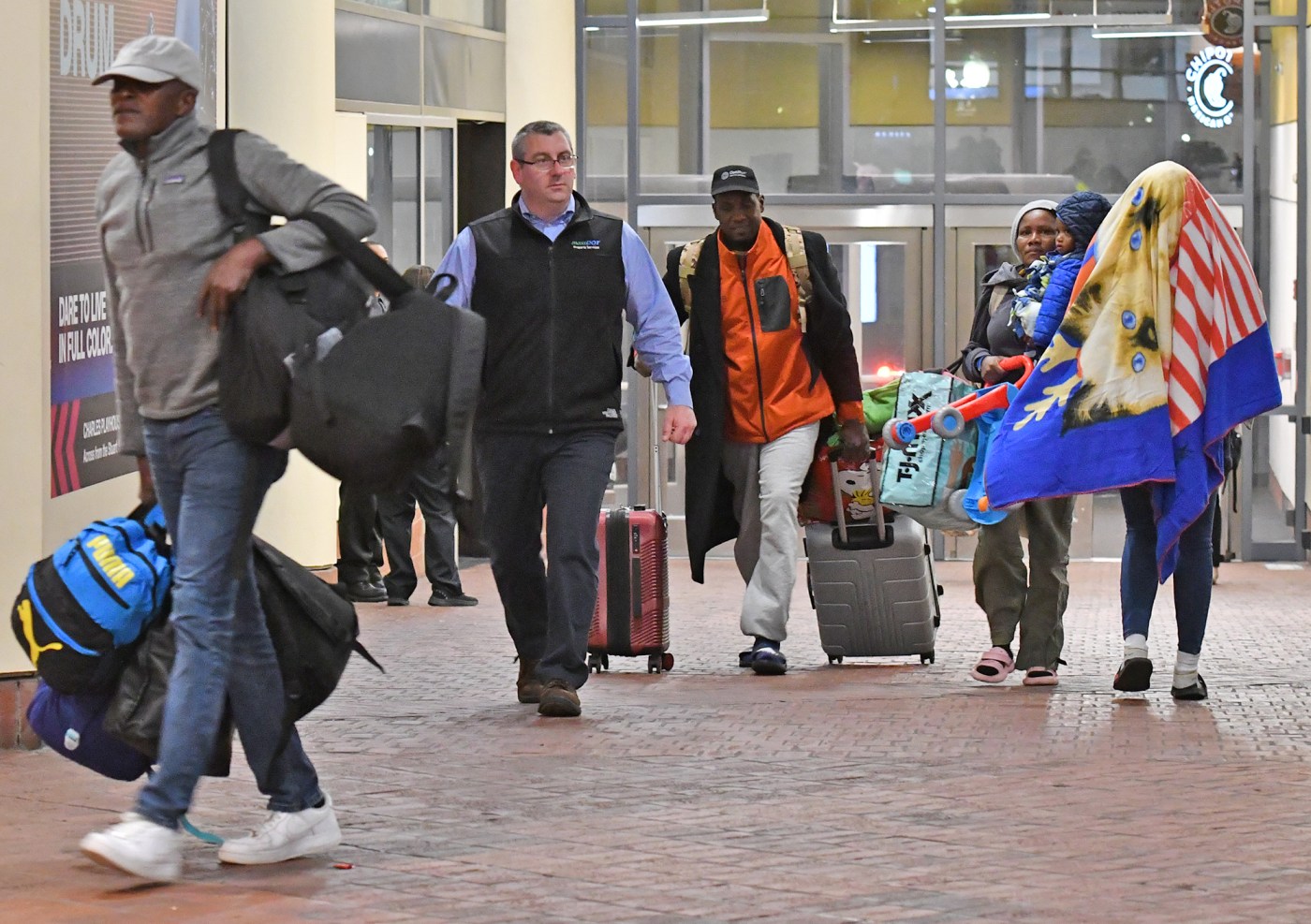
Pressure mounts on Beacon Hill to pass bill with migrant aid, union contract dollars
Pressure mounted Monday on Beacon Hill lawmakers to find a deal on a $2.8 billion bill that includes money for 90 collective bargaining agreements and strained emergency shelters across the state housing migrant and homeless families.
House Republicans and pushed Democratic negotiators in a letter to split off the union dollars from the main proposal as the shelter aid continues to hold up talks that broke down at the end of formal law making last week.
There is clear consensus in both the House and Senate to fund the union contracts, most of which were agreed to months ago, Republicans wrote in the letter.
“These (collective bargaining agreements) contain pay raises for approximately 100,000 workers, many of whom have gone without a COLA or raise in quite some time, even as the cost of living in Massachusetts has continued to climb. These CBAs were negotiated in good faith, and it is imperative that the state fulfill its obligation to fund these contracts,” the letter said.
Sen. John Keenan, a Quincy Democrat, also called on negotiators to advance the collective bargaining agreement money and funding for school districts impacted by special education tuition rate increases.
“Regarding the collective bargaining agreements, the failure to act immediately on these overdue raises would represent a severe injustice to workers who serve the Commonwealth and negotiated in good faith. I respectfully implore the conference committee to report out these and other agreed upon provisions of the spending bill for consideration during an informal legislative session before Thanksgiving,” he said in a Friday letter.
Legislative conservatives made their push to advance the contract funding as hundreds of public employees rallied at the State House early in the day as both branches held their first informal sessions of the week.
SEIU Local 509 President David Foley said members of the union were “preparing to navigate winter holiday and heating bills with wages that were already insufficient last year.”
“Because the Commonwealth has continually failed to make a meaningful investment in our agencies, our members are also facing major staffing, caseload and workplace safety issues daily,” Foley said in a statement. “We’re floored by the total disregard the Legislature has shown for our agencies and our families, and all of our public-sector union siblings.”
The spending bill, which also closes out the books on fiscal year 2023, includes just over $378 million for bargaining agreements. House Republicans told the Herald last week that this may be the latest closeout spending bill in years, something that could have negative effects on the state’s financial health.
Union leaders said they want to see the funding for the contracts land on Gov. Maura Healey’s desk before Thanksgiving.
“We are not interested in excuses. We are not interested in watching legislative leaders play the blame game and point fingers at each other. We view this as everyone’s responsibility, Democrats and Republicans alike, from the first term legislators to the member with the most seniority,” AFSCME Council 93 member Kelly Abreu said in a statement.
Six lawmakers were tasked last week to negotiate a compromise bill, a development Senate Minority Leader Bruce Tarr said allows for “the productive bi-partisan conversation we need among the conferees, representing the members, to at least have a chance for better results than we have seen so far.”
“With bond rating agencies on Wall Street watching, there is a lot hanging in the balance, including funding for a wide array of collective bargaining agreements for thousands of state employees that were negotiated in good faith and deserve to be funded, to millions of dollars in disaster relief for communities impacted by numerous severe weather events,” Tarr said in a Monday statement.
As legislators kicked off a seven-week holiday break that will take them into the new year, advocates for the homeless and migrants held a vigil outside the State House Monday afternoon where they called on Healey to create a state-funded overflow site for families placed on a waitlist for emergency shelter.
Emergency shelters hit Healey’s self-imposed max capacity of 7,500 families earlier this month, triggering a waitlist for future placements and uncertainty among advocates about where people would sleep during cold nights.
Democratic leadership in the House proposed funding a state-run overflow site in the $2.8 billion spending bill, a proposal counterparts in the Senate disagreed with and something that has since held up talks.
Healey has called on the federal government to stand up a large-scale overflow site and moved to create a grant program for overnight shelters administered by the United Way of Massachusetts Bay.
A conference room at the state Transportation Building in Boston will house 25 families, the Healey administration said Monday.
House Speaker Ronald Mariano said families sleeping in a government building is “emblematic of the need for funding that is specifically reserved for overflow shelter options with greater capacity.”
“The House remains committed to ensuring that families in Massachusetts have somewhere safe and warm to sleep at night, and will continue to urge the Administration to identify additional overflow shelter sites going forward,” he said.

